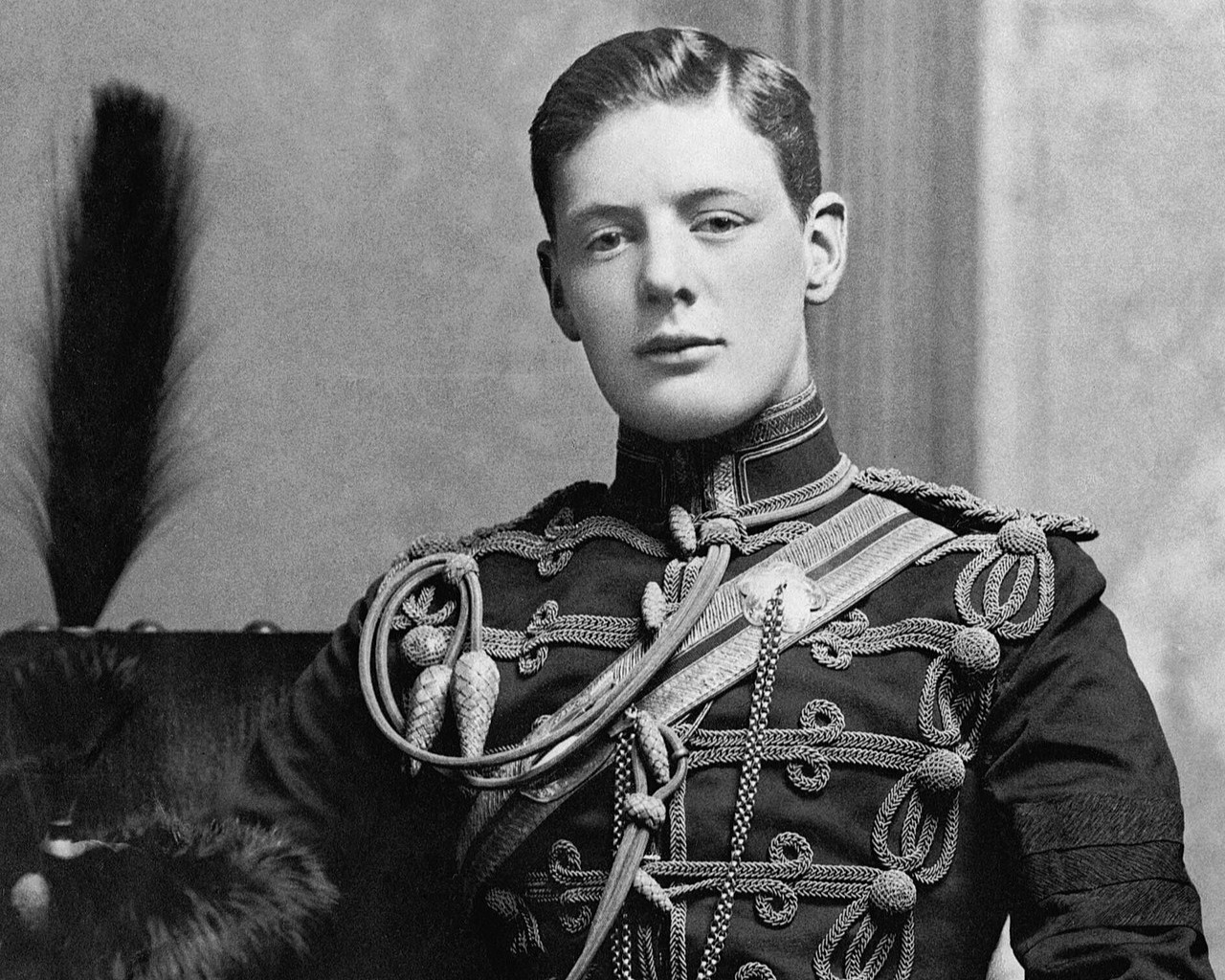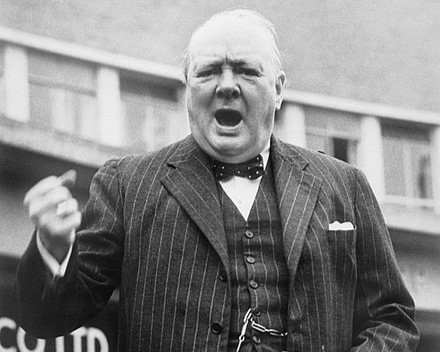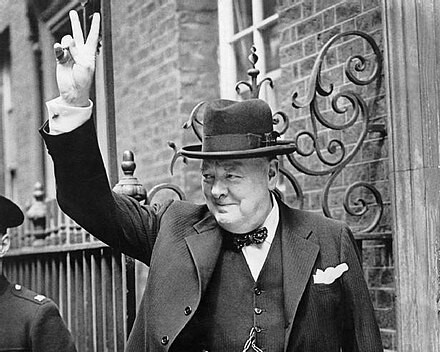Full name:
Sir Winston Leonard Spencer Churchill

"Calling for a United States of Europe"
Sir Winston Leonard Spencer Churchill
30 November 1874, Blenheim, Oxfordshire, England
24 January 1965 (aged 90), London, England
- Winston Churchill
In Dutch, V stands for "Vrede" (Peace) and "Vrijheid" (Liberty). In French V stands for "Victoire" (Victory). Churchill created his famous 'V for Victory' sign, that today is known as "Peace Sign" (It can be seen in the second picture).

Twenty-one-year-old Winston Churchill in the uniform of the Fourth Queen's Own Hussars

Churchill making a speech, during the general elections, Uxbridge, Middlesex, England, 1945

Churchill showing the infamous "Victory sign"/"V-sign"